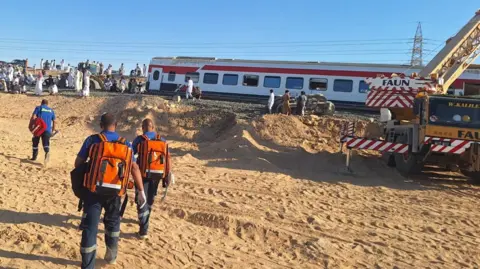Recent flash floods around the globe have shed light on the pressing challenges in disaster prevention and early warning systems. In Texas, authorities are facing criticism for their failure to fund necessary early warning systems in regions prone to sudden and severe rainfall, a situation that culminated in horrific floods on the Guadalupe River, resulting in over 120 casualties, including many children.
Experts assert that while accurate forecasting is crucial, it often falls short when it comes to effectively preventing tragedies. "Flash floods are the hardest kind of disaster to prevent,” explained Erin Coughlan de Perez, a disaster risk management expert from Tufts University. Many regions, both affluent and impoverished, continue to struggle with investing in systems that, when underfunded, either fail to work correctly or generate excessive false alarms, ultimately eroding public trust in these alerts.
The recent events in Valencia, Spain, further exemplify this struggle. Despite an existing alert system, critical warnings were not disseminated in a timely manner, contributing to a disaster that claimed over 200 lives last year. "When the alert came, my grandpa had already drowned," a local resident recounted, highlighting the personal tragedies entwined with systemic failures.
Dr. Coughlan de Perez notes a significant “cry wolf” phenomenon due to the unpredictable nature of flash floods, leading to hesitancy in investment for preventive measures. However, with climate change intensifying weather patterns, the urgency to enhance preparedness and communication strategies has never been greater. As global leaders and experts convene to tackle these pressing issues, the lessons from these tragedies must serve as a catalyst for meaningful action in improving disaster risk management systems worldwide.



















